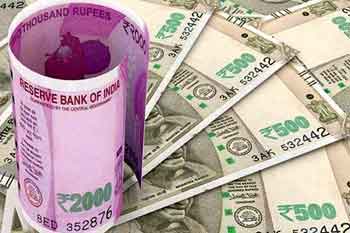Unmasking Modi Phobia : In the high-stakes arena of Indian politics, the winds of change often blow swiftly and unpredictably. Recent assertions by Bharatiya Janata Party (BJP) Rajya Sabha member Dinesh Sharma shed light on a phenomenon gripping the opposition landscape: Modi phobia. As the political climate heats up in anticipation of the upcoming Lok Sabha elections, a narrative of unity among opposition parties emerges, albeit one that may be short-lived.
The Rise of Modi Phobia
Dinesh Sharma’s remarks underscore a prevailing sentiment among the opposition: fear of Narendra Modi’s continued dominance in Indian politics. The notion of Modi phobia suggests a collective apprehension among rival parties regarding the BJP’s electoral prowess and the Prime Minister’s charismatic appeal. This fear, Sharma asserts, has become the catalyst for seemingly disparate parties to band together in a bid to challenge the BJP’s hegemony.
Temporary Alliances Amidst Political Fractures
While the formation of alliances such as the India Alliance, comprising parties like Congress, Aam Aadmi Party, Samajwadi Party (SP), and Trinamool Congress, may appear formidable on the surface, Sharma predicts internal discord once the dust settles post-election. He highlights the opportunistic nature of these alliances, driven not by shared ideology or vision but by a pragmatic desire to thwart Modi’s ascendancy.
A Clash of Egos and Ambitions
Sharma’s analysis delves deeper into the dynamics at play within opposition ranks, pointing to inflated egos and competing ambitions as primary obstacles to sustained collaboration. The assertion that these parties may struggle to even elect a leader of the opposition from within their own ranks underscores the fragility of their unity. Despite their outward display of solidarity, inherent fissures threaten to fracture the coalition once electoral pressures subside.
The Ramification of Electoral Realities
The impending Lok Sabha elections serve as a litmus test for the cohesion and viability of opposition alliances. Sharma’s observations regarding the electoral posturing of leaders like Akhilesh Yadav highlight the fluidity of political allegiances in the face of electoral imperatives. The spectacle of erstwhile adversaries embracing symbols of Hindu identity underscores the extent to which electoral considerations shape political rhetoric and actions.
BJP’s Prognosis and Confidence
In contrast to the perceived disarray within opposition ranks, Sharma exudes confidence in the BJP’s electoral prospects. His assertion that the BJP and its allies are poised to secure over 400 seats in the Lok Sabha reflects a bullish outlook on the party’s electoral fortunes. Sharma’s optimism is buoyed by recent visits to southern states, where he claims to have witnessed widespread support for the BJP’s agenda and leadership.
The Tumultuous Terrain of Indian Politics
As the countdown to the Lok Sabha elections begins, the political landscape in India remains characterized by uncertainty and flux. Dinesh Sharma’s insights into the phenomenon of Modi phobia offer a glimpse into the intricate web of alliances, rivalries, and electoral calculations that define contemporary Indian politics. While opposition parties may find temporary solace in their united front against the BJP, the enduring challenge lies in transcending narrow agendas and egos to present a credible alternative to the electorate.












